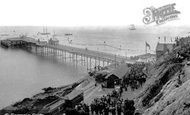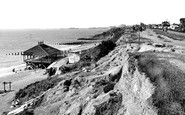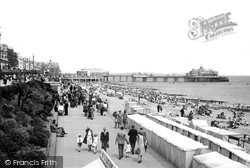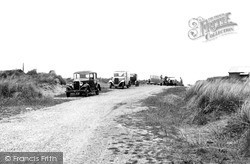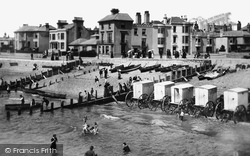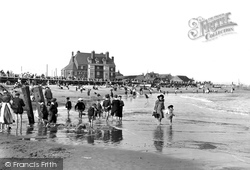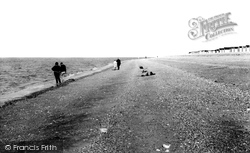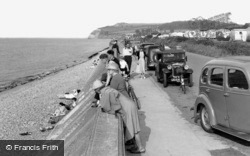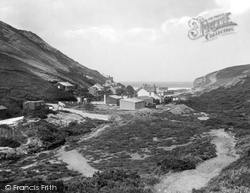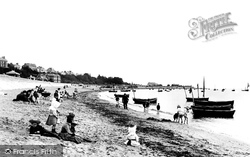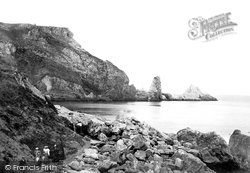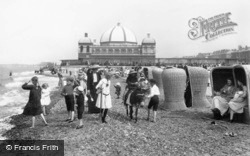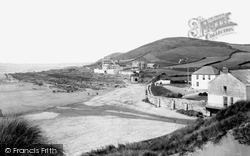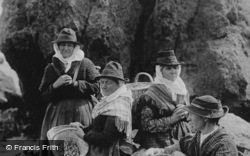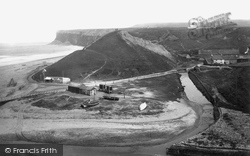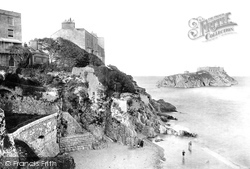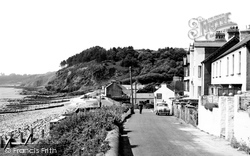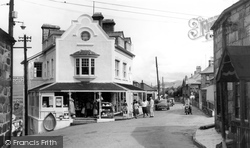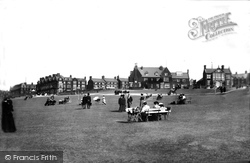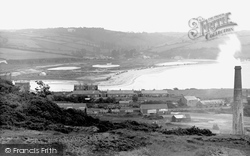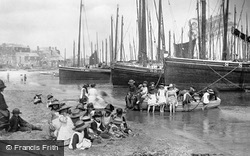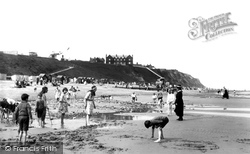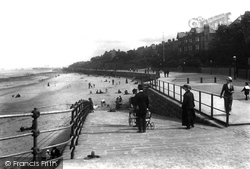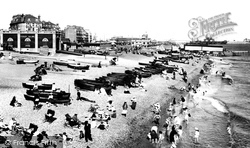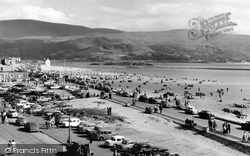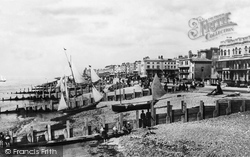Places
12 places found.
Those places high-lighted have photos. All locations may have maps, books and memories.
Photos
191 photos found. Showing results 681 to 191.
Maps
115 maps found.
Books
1 books found. Showing results 817 to 1.
Memories
1,374 memories found. Showing results 341 to 350.
Summer Days At Oystermouth
Memories of The Mumbles by John S. Batts Viewing on-line a collection of Frith’s old photos of The Mumbles has jogged many memories. For me the place was simply known as “Mumbles,” home to a much-treasured uncle ...Read more
A memory of Mumbles, The by
Summer Camp
At Sir Josiah Masons Orphanage in Birmingham where I was bought up from 8 - 16 years old we ran both Guide and Scout troops. During our senior years we went to camp at Abererch in the Summer holidays and this was an event that was ...Read more
A memory of Abererch in 1950 by
Summer At Dark Lane
I remember that we had some wonderful days at Dark Lane on the beach when we should have been at school! And how wonderfully clear the water was, and diving off the pipe there!
A memory of Aldwick in 1969 by
Summer 1967
You werent dreaming Patricia! - they were there and they are still there from Easter to the end of September. They are on the beach walking from Cawsand to Kingsand and then on for half a mile or so towards Plymouth. They are as loved now as they ever were. Best Wishes Gillian
A memory of Cawsand in 1967 by
Summer 1967
When I was three or four years old I visited Cawsand for a family holiday. I remember it very clearly because, for various reasons, it was the only holiday we all went on together. I am hoping someone might be able to solve an on-going ...Read more
A memory of Cawsand in 1967 by
Such Great Holidays!
I remember as a child the great holidays in the 60s on the beaches at Holland. We hired a beach hut for 7/6 a week near the deck chair and paddle float hire. Who can forget the pretty girls who pushed the ice cream ...Read more
A memory of Holland-on-Sea in 1960 by
Suburban Elstree
I lived in Lodge Avenue from 1957 to 1976. It runs off Allum Lane, which was a major road that connected Watling Street to the Railway Station, which opened in 1868. Lord Aldenham, Governor of the Bank of England, lived in ...Read more
A memory of Elstree by
Stoney Beach & The Lifeboat Station
Parents in the (old) Kinmel Arms, boozing over an extended lunch time - my brother and me exiled to the adjoining Stoney Beach where we passed the hours away crushing the softer red ...Read more
A memory of Moelfre in 1957 by
Stone House
I lived in the war damaged Stone House, Cullercoats which was situated within 10 ft stone walled enclosed gardens, adjacent to Stone House Cottage, fishermens cottages and a big hotel facing the road down to the beach. from birth ...Read more
A memory of Cullercoats by
Stockton Road
I was born in Flixton before moving with my parents to Stockton Road Chorlton-Cum-Hardy. At the time my dad was working at Metrovicks in Trafford Park before getting a job working for the MOD at The Royal Ordinance Factory ...Read more
A memory of Chorlton-cum-Hardy in 1941
Captions
1,131 captions found. Showing results 817 to 840.
This more distant view also shows the columned enclosure that surrounded the 'squashed onion' domed central bandstand which provided an upper gallery of seating, all set on a projection onto the beach
The unmade road leads from the village to the beach. The sand-dunes are covered with marram grass, which helps knit them together and prevent erosion on this windy coast.
Bathing machines were still very popular at Bognor in 1890 - it was not until the Edwardian era that people changed and swam from the beach.
This is a fine view of the 'lost beach' of Gorleston, so named because after years of erosion it has been reduced to a fraction of the size we see here.
Heacham has the distinctive flat beach of this part of the West Norfolk coast.
With the railway came tourism, first with beach huts, then chalets, and, in the 1950s, caravan sites.
One of the few places on the north coast with access to a fine sandy beach and increasingly popular with surfers, Porthtowan is seen here in its early years of development and is hardly recognisable today
At the beginning of the last millennium, marauding Danes landed on these sandy Devon beaches and put the village of Exmouth to fire and sword.
Anstey's Cove, with Redgate Beach hidden on the left, was a favourite bathing spot for Agatha Christie, who was born in Torquay in 1890.
Hence Rhyl has become noted for the number of children that visit it, and these little ones find an inexhaustible fund of pleasure on its beach. The iron pier was built in 1867.
Once a sleepy Devon backwater, Croyde's beach and bay was discovered by holidaymakers in the 19th century. With two huge caravan parks, this area fills up dramatically in the short summer season.
Posed on Goscar Rock on Tenby's North Beach, these women were paid for their work as models.
There are swings on the beach (extreme left of picture) and tea, refreshments and hot water can be obtained from the café by the roadside.
Traditionally in the ownership of wealthy occupants, the private steps leading down to the beach still belong to these houses, except those on the extreme left.
The groynes on the beach indicate the ferocious tidal currents; in 1931 these currents seriously undermined a row of cottages up the road on the seaward side, that were subsequently
The ice cream shop on the corner is also stocked with plastic beach balls and even a paddling pool.
Then building began in earnest as visitors flocked to enjoy its safe, sandy beach and bracing cliff-top walks. The new town is gathered around an expansive green.
It can be appreciated from this photograph how the bleak area of beach and pools resulted from the infilling of the bay by silt and sand from the china clay industry; the old cliff line
The children are bare-footed, not just because they are on the beach; boots were worn only on Sundays.
Two routes are to be seen in the background leading to the beach. To the right, the private steps (now lost) from the Manor Hotel led to their own promenade.
A family walk down Magazine Lane Slipway onto the beach. This is close to the site of the magazines: ships entering the Mersey had to deposit any gunpowder there during their stay in port.
A row of small fishing boats is drawn up on the beach; they were used to gather shrimps and lobsters. A lifeboat station (left background) was at the ready to cope with any rescue missions at sea.
A hugely expansive beach here means that it never fills up with holidaymakers in this popular resort and former fishing and trading port.
Prior to that it had been little more than a settlement of fishing cottages down by the beach, below the village of Broadwater.
Places (12)
Photos (191)
Memories (1374)
Books (1)
Maps (115)

